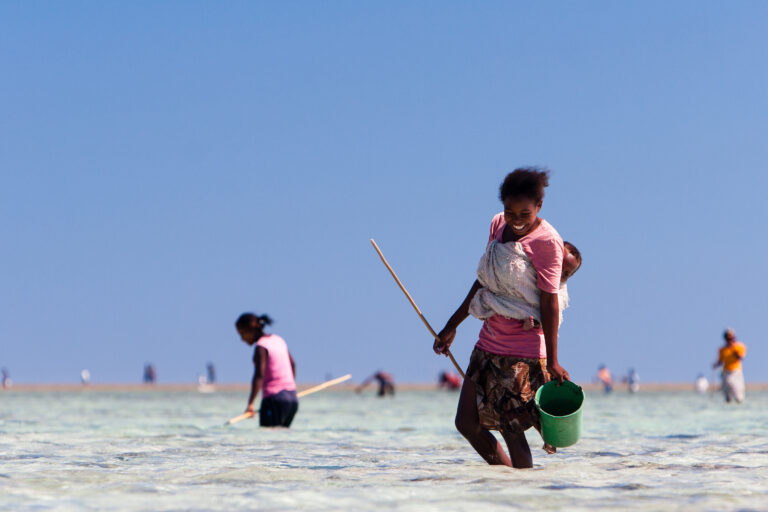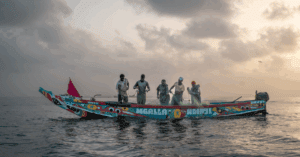The challenge of achieving contraceptive equity for the most marginalised women and girls is being placed centre-stage at the Family Planning Summit in London this week, as Blue Ventures announces a bold commitment to increase access to family planning services for hard-to-reach communities by scaling up cross-sector partnerships among health and environmental organisations.
The Family Planning Summit in London on 11th July is bringing together policymakers, donors and advocates from around the world to review progress and strategies for reaching the Family Planning 2020 goal of enabling 120 million more women and girls to use contraception by 2020.
Blue Ventures has been invited to share its ‘FP2020’ commitment at the Summit because of the growing impact of its cross-sector partnerships model, developed in Madagascar and now being scaled up in the Western Indian Ocean and Southeast Asia. Blue Ventures’ commitment includes a pledge to increase access to family planning services for 600,000 people living in the coastal tropics by 2020.
The meeting, hosted by DFID, the Bill and Melinda Gates Foundation and the United Nations Population Fund, takes place against a backdrop of unprecedented funding cuts to family planning services worldwide.
Blue Ventures’ approach allows health agencies to piggyback onto its operational infrastructure and strong community relations in isolated coastal locations, enabling mobile service delivery in remote areas often deemed too difficult or expensive to reach. By integrating family planning with community-based natural resource management initiatives in this way, access to family planning can be increased, while strengthening community-based conservation and improving gender equality. This holistic approach to environmental conservation and community development can also be instrumental in building resilience to climate change.
Drawing on fifteen years of field experience along Madagascar’s remote coastline, Blue Ventures is now sharing learning and providing technical support to other organisations across Madagascar and further afield, to support replication of this cross-sector partnerships model.
This approach, which has been praised by British naturalist Sir David Attenborough as “a model for everyone working to conserve the natural life-support systems of our troubled planet,” has already helped to increase access to family planning services for some 135,000 people in Madagascar, one of the world’s poorest and most important biodiversity hotspots. Inspired by such progress, Blue Ventures has committed to support the scale up of this cross-sector partnerships model in six additional countries in coastal East Africa and Southeast Asia.
“We’ve seen that health and environmental organisations can both benefit by developing cross-sector partnerships and adopting more integrated programming,” said Dr Vik Mohan, Blue Ventures’ Medical Director. “Environmental organisations benefit from being able to work with healthier, more engaged communities. Health organisations benefit from being able to serve communities that might otherwise be deemed too difficult or expensive to reach. And of course communities benefit from having more of their needs met.”
One billion people across the world live in a biodiversity hotspot, and most have less access to family planning and other health services than their urban counterparts. “It is our hope that the London Summit will inspire other environmental and health organisations to adopt this approach, benefiting some of the world’s most under-served communities,” said Dr Mohan.
More information about Blue Ventures’ integrated approach to marine conservation can be found here. Dr Mohan describes the multifaceted advantages of this holistic way of working in his recent TEDx talk.
More information about the Family Planning Summit and the FP2020 goals can be found here.
For images to accompany this release please visit this link.
For further media enquiries please contact Blue Ventures’ Head of Digital, Dr Martin Muir ([email protected]).


















